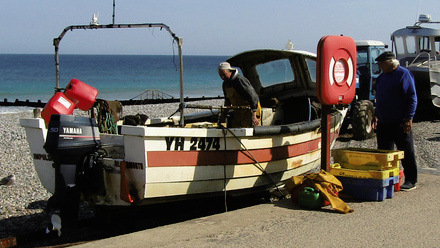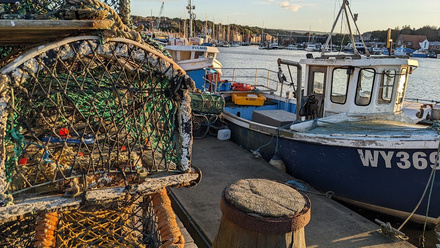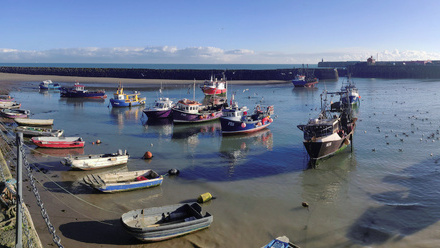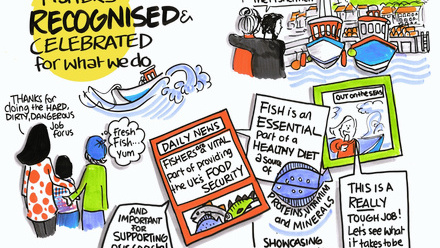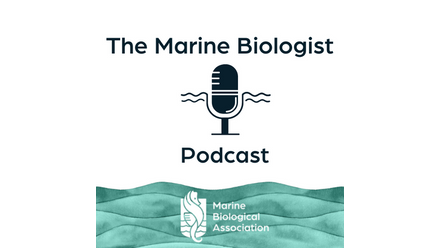Sustaining small-scale fisheries
The UK fishing industry is often heralded as a national asset and the lifeblood of coastal communities. Evidence continues to build about the value of fisheries to coastal regions, along with recognition of their importance to national food security. A recent study in Cornwall, which showed that for every fisherman at sea there are 15 more shore-based jobs, is one great example of the interconnectedness between fishing and thriving coastal towns. We also have greater understanding of the high regard in which our fishing industry is held by the British public. A high-street survey conducted with 510 members of the public in fishing towns in England found: 83 per cent agreed they’d be ‘very concerned if the fishing fleet no longer existed in their area’; 99 per cent agreed that ‘local fishing is important to cultural heritage and identity of the area’; and 84 per cent felt that ‘more should be done by government to protect the fishing industry in their area’.
A declining fleet
Whilst we are getting better at realizing and celebrating the wide range of benefits from well-managed and sustainable fisheries, at the same time those benefits, and the public accessibility to them, is under threat. That threat is often framed in terms of continuing unsustainable fishing, understandably the focus of many. New research, however, is highlighting a parallel threat which has received less attention that it deserves. That is the decline in the fishing fleet.
As anyone who has held a recent conversation with a fisherman will know, their concern quickly turns to the decline in numbers of fishing boats across our harbours, and the outlook, not just for their jobs, but for the continuation of a ‘way of life’ that has always existed along the shores of our island nation.
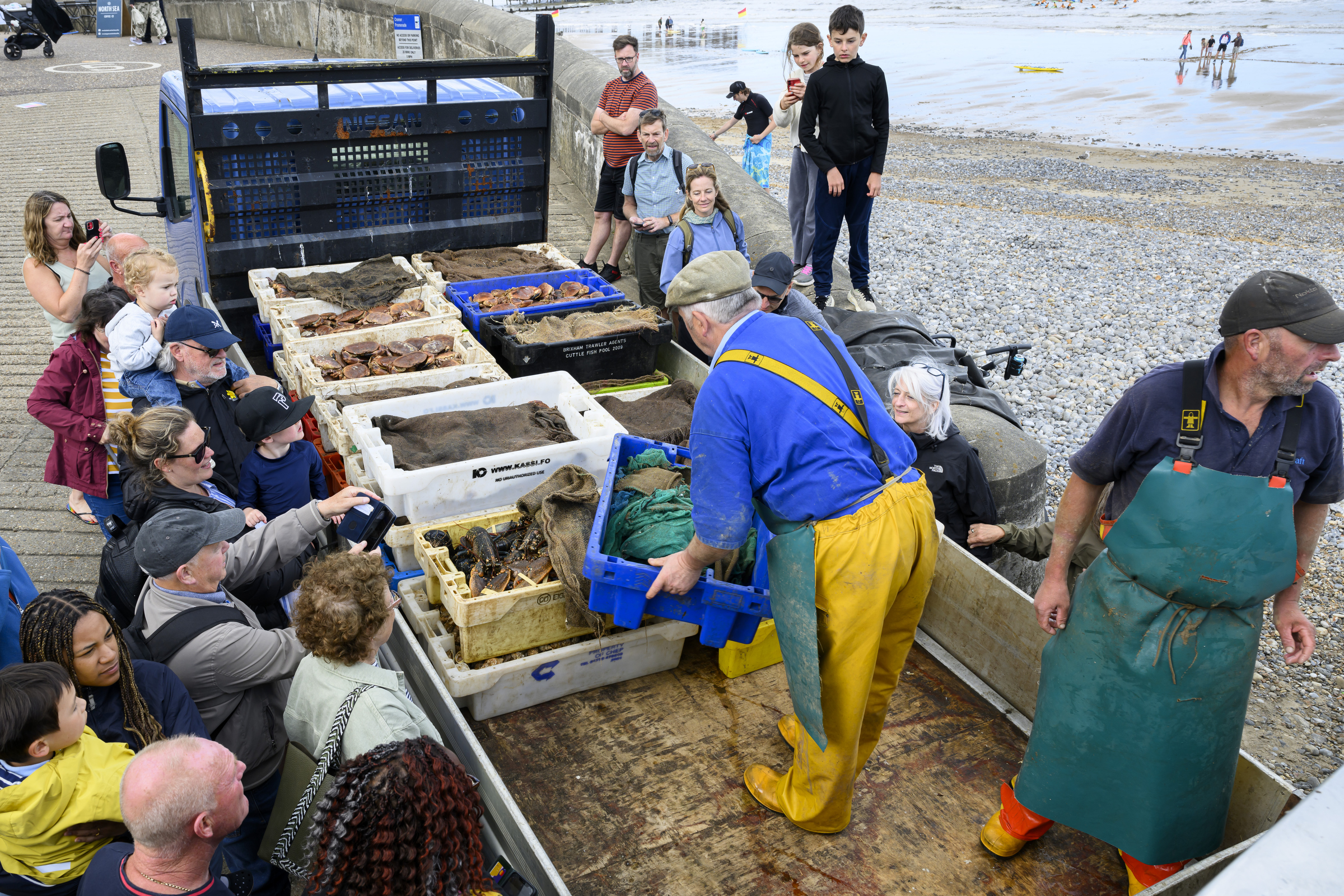
Locals look on as fresh shellfish are landed in Norfolk. © Ian Georgeson Photography.
New evidence published in the journal Fish and Fisheries confirms that fishermens’ concerns are justified. The entire fleet is in decline across the whole UK. However, what is compelling about this analysis is that it highlights that the decline is being unevenly felt, both regionally and across different sectors of the fleet. As is shown by the Heatmap below, the red ‘hot spots’ of decline indicate parts of the country that are facing higher rates of loss in their fishing fleets, whilst in England, the under 10 m sector (small boats which make up 75 per cent of the active fleet) has lost almost one fifth of its boats in just the last 14 years, a rate of decline almost twice that recorded in over 10 m vessels.
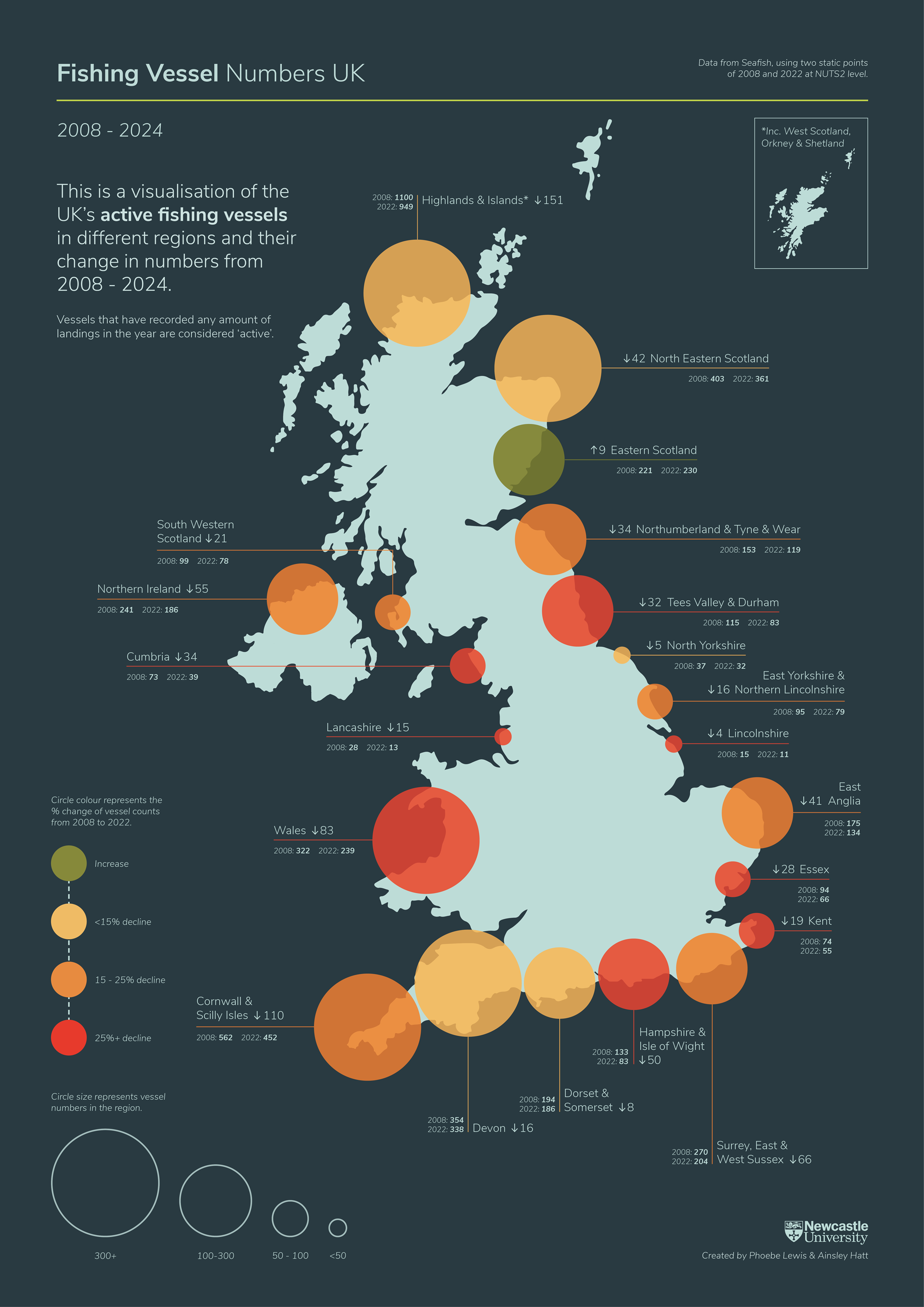
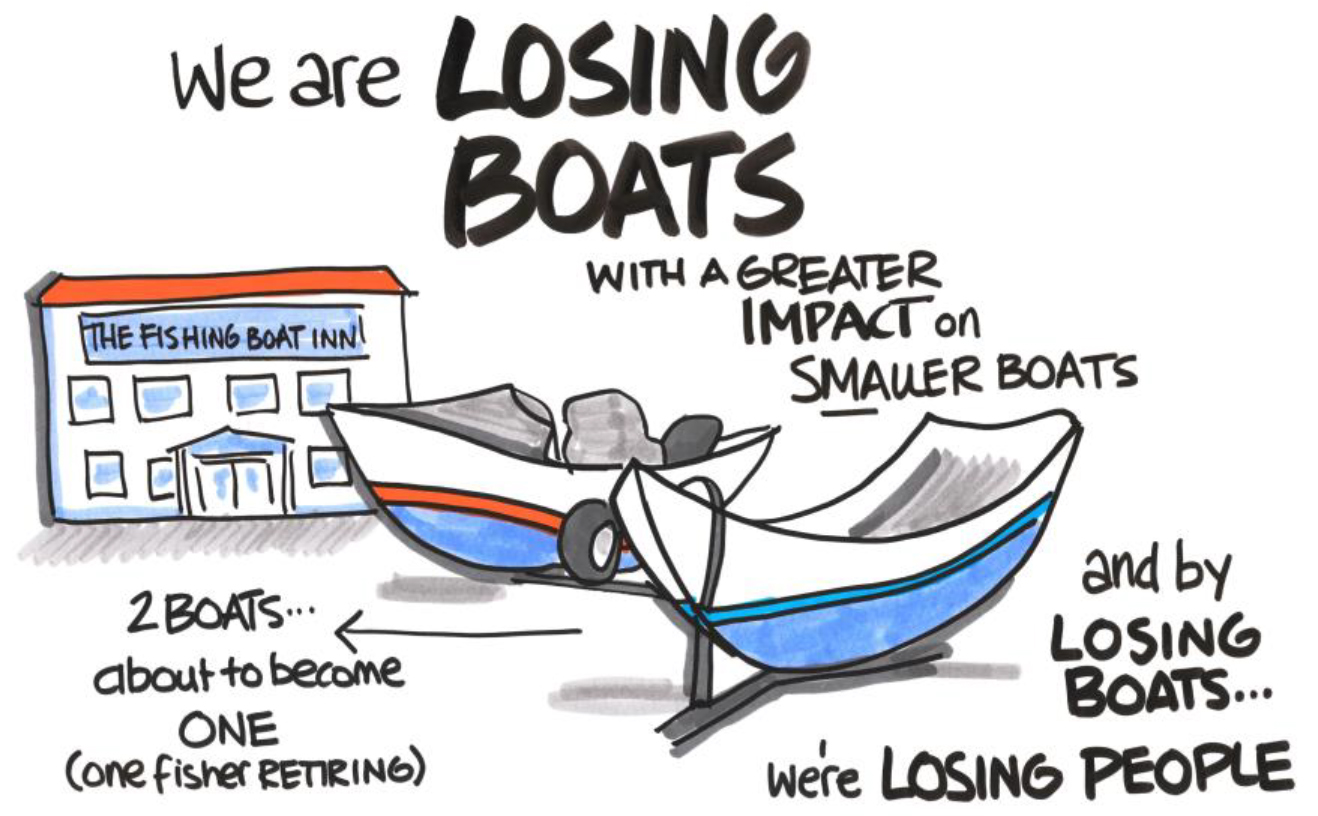
© Caroline Chapple. chapplecartoons.co.uk
A diverse fleet containing all boat sizes is important, and larger boats often secure the viability of local fishing infrastructure and markets. However, recognizing and protecting small boats within that diversity is essential because they ensure the wide distribution, accessibility, and recognition of fishing benefits to society (see Box).
Box . Recognition and protection
A thriving inshore and small-scale fishing fleet:
- ensures the societal benefits that flow from fisheries are widely distributed across the entire UK coastline, via boats landing fish in (often rural) small harbours and beach landings, generally unsuitable for larger boats,
- ensures benefits are accessible to the public, since in smaller harbours people can directly experience fish being landed by boats (many larger ports utilized by larger vessels are multi-use and inaccessible to the public), and
- provides wider public availability and interaction with fisheries, which means the benefits themselves are more visible, recognizable, and valued by the public.
A new collaboration of fishermen’s organizations, government regulators, NGOs, and scientists with a focus on securing Inshore and Small-Scale Fisheries (ISSF) is working to understand the drivers of the decline in the inshore fleet and how to mitigate it, highlighting the importance of viable livelihoods as a cornerstone to developing sustainable fisheries. Ultimately, delivering the UK Fisheries Act objective of a ‘national benefit’ from sustainable fisheries that is truly national in scope, and accessible across our coastline, depends upon securing the contributions of a viable inshore and small-scale fishing sector.
• Dr Sarah Coulthard (sarah.coulthard@newcastle.ac.uk) Newcastle University.
The Inshore and Small-Scale Fisheries consortium (ISSF) is an assemblage of individuals working in sustainable fisheries science, management
and advocacy, connected through a National Innovation Centre for Rural Enterprise (Newcastle University) partnership project, which can be followed online.

